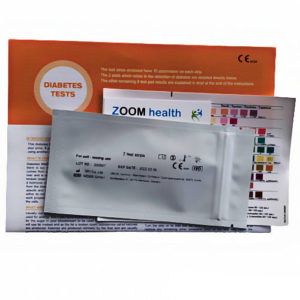Evidence Shows Brisk Walking Lowers Your Chances of Developing the Disease
New research reveals that walking at a brisk pace is associated with a significantly lower risk of developing type 2 diabetes compared to walking slowly. This global analysis, published in the British Journal of Sports Medicine, is the first study investigating the connection between walking speed and diabetes odds.
The authors investigated over 10 studies with more than half a million participants tracked for 3-11 years. They discovered a clear correlation: faster walkers had lower chances of getting type 2 diabetes during the study periods.
But what exactly counts as ‘brisk’ walking? It’s not about breaking into a sweat or gasping for breath. Think of it as walking with purpose, as if you’re running late for the bus. You should be able to chat, but not belt out your favourite tune. Your heart rate will climb, and you’ll feel warmer, but you shouldn’t be uncomfortable. It’s a pace where you’re covering ground efficiently, yet still able to enjoy your surroundings. For most people, this sweet spot lies between 5-6 km/h (3-3.7 mph). The beauty of brisk walking? It’s accessible to nearly everyone, requires no special equipment, and can be easily incorporated into daily routines.
Specifically, people who walked faster than 3 km/h (1.86 mph) were less prone to diabetes. Doing over 5 km/h (3.1 mph) correlated with a 24% lower risk, while 6 km/h (3.7 mph) and up lessened the odds by 39%. Thus, a fairly brisk tempo seems ideal for diabetes prevention through walking.
The researchers speculate why brisk walking helps avoid type 2 diabetes, which currently afflicts over 537 million individuals globally. Walking speed connects to cardiorespiratory fitness, muscle strength, and weight loss – all protective against diabetes development. Additionally, brisk walking simply indicates better overall health.
The study does have flaws, like the risk of bias and the fact that quick walkers have more initial health advantages. Still, there are biological mechanisms explaining why maintaining a decent pace while walking assists in combating diabetes.
Increasing total time spent walking remains crucial for diabetes prevention. But mixing in some brisk sessions may maximise the benefits further, the researchers emphasise. Most people should manage quicker walking speeds for short periods of time at least.
Diabetes charities welcome the focus on walking speed. Encouraging fairly brisk paces alongside rising total walking volumes could make a real difference for public health and slash type 2 diabetes incidence rates. Getting people walking briskly every day without expensive interventions could pay dividends long-term.
Overall, this global analysis highlights why walking speed matters for staving off type 2 diabetes. Policymakers should consider concrete ways to assist people in reaching the threshold levels of brisk walking found in this study. Even minor increases across whole populations could yield substantial results over years.
The Importance of Urine Testing for Diabetes
Why You Should Test for Glucose and Ketones
Urine testing can detect key markers that may indicate diabetes or poor blood sugar control. Getting tested, even if you have no symptoms, can lead to earlier diagnosis and treatment to prevent complications. A Home Diabetes Test Kit can help you do this. Here are 5 reasons urine testing for ketones and glucose is advantageous:
1. Early Detection of Diabetes
Urine tests that find glucose or ketones could flag type 1 or type 2 diabetes before major symptoms emerge. This allows you to start managing it sooner through medication, diet, exercise or other lifestyle changes to avoid issues down the road. The earlier diabetes is caught, the lower your risk for nerve, kidney, vision and cardiovascular damage.
2. Monitor Blood Sugar Control
While blood tests diagnose diabetes more accurately, urine glucose testing offers a simple at-home method to get a general sense of your blood sugar levels. Higher glucose in urine typically aligns with higher blood glucose. For those with diabetes, monitoring urine glucose can indicate if treatment plans need adjustment to better control blood sugar.
3. Assess Diabetic Ketoacidosis Risk
Type 1 diabetics are prone to diabetic ketoacidosis (DKA), a dangerous buildup of blood acids called ketones. Urine ketone testing is vital for type 1 diabetes to catch DKA early, before it turns into a medical emergency. If urine shows high ketones, urgent medical care is needed.
4. Inform Exercise Decisions
For diabetics, checking urine ketones is smart before working out if blood sugar is high. Exercising with high ketones can worsen blood acidity. A urine test indicating elevated ketones means a workout should be postponed until blood sugar is stabilised.
5. Promote Dialogue with Your Doctor
Positive urine ketone or glucose tests give you tangible data to bring to appointments. This helps guide discussions around reasons levels are high, whether adjustments in medications or lifestyle habits may help, and if additional testing is warranted to pinpoint issues.
In summary, urine testing for the key markers of glucose and ketones offers diabetics and pre-diabetics an easy, accessible way to monitor their condition and inform themselves and their doctors. Getting tested periodically, even without symptoms, enables earlier intervention that can profoundly influence long-term health outcomes.
Photo by Sincerely Media on Unsplash
Zoom Health is a leading UK supplier of Home Health Tests and Earplugs






